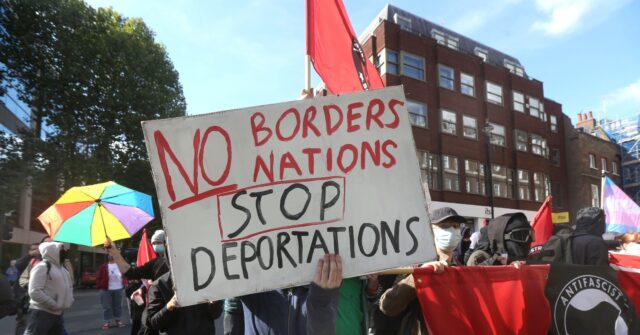A recent case involving a convicted paedophile from India has sparked significant debate about the implications of the European Convention on Human Rights (ECHR) on the UK’s ability to manage immigration and deportation effectively. The individual, who received a 14-month prison sentence in 2021 for distributing child sex abuse images, has successfully appealed against deportation on the grounds that it would adversely affect his children. His lawyers asserted that sending him back to India would violate his right to a “private and family life” as protected under Article 8 of the ECHR. This has reignited conversations about the balance between human rights protections and public safety in the context of immigration law.
The immigration judge, Jetsun Lebasci, sided with the convict’s appeal last August, determining that deporting him would be “unduly harsh” for his children. The ruling has prompted the Home Office to challenge the decision, showcasing the contentious nature of this case. Critics argue that allowing a convicted individual, especially one with such serious offenses, to remain in the UK is improper and dangerous. The legal interpretations surrounding such cases raise critical questions about the priority given to the rights of offenders over the safety and well-being of the public and potential victims.
This case is emblematic of broader criticisms regarding the UK’s continued adherence to the ECHR, particularly from prominent figures like Nigel Farage. Although the UK formally exited the European Union in 2020, it has retained membership in the ECHR, leading many to argue that this undermines the nation’s sovereignty over its immigration policies. Farage has been vocal about the need for a new referendum, advocating that the British public should have the opportunity to decide whether to sever ties with the ECHR. This reflects a growing sentiment among certain political factions that view the ECHR as an impediment to effective law enforcement and immigration control.
Adding to this mounting pressure on ECHR membership is the stance taken by Tory leadership hopeful Robert Jenrick, who has criticized the institution in light of cases like the Indian paedophile’s. Jenrick’s remarks highlight a perceived insanity in the system that allows dangerous individuals to remain on the streets due to what he describes as “spurious” claims based on the ECHR. His assertion that the safety of British citizens should come before these legal protections reverberates with a portion of the public that is concerned about crime and safety. The ongoing debates about the ECHR’s role reflect a significant tension between human rights considerations and public safety.
The scrutiny of the ECHR has intensified following a critical ruling in 2022 that blocked the UK government’s plans to deport illegal migrants to Rwanda. This decision illustrated the extent to which the ECHR can influence domestic immigration policy, and it raised alarms about the efficacy of the UK government’s ability to manage its borders. The ruling disrupted the government’s strategies to deter unlawful migration, leading to ongoing debates about the effectiveness of current immigration laws and the need for reform. The Labour government under Sir Keir Starmer has since abandoned the Rwanda plan, further complicating the landscape for immigration policy in the UK.
The situation surrounding the Indian paedophile’s appeal is not merely about one individual but represents a broader discourse on the implications of human rights laws in the context of national safety and border control. As pressure mounts on the UK government to revisit its relationship with the ECHR, it is evident that the ongoing discussions will significantly shape future immigration policies. The call for reform and potential revisions to the ECHR’s influence in the UK reflects a pressing need to find a balance between protecting individual rights and ensuring public safety. Whether through public referendum or political action, the future of the ECHR in UK law remains a contentious issue with the potential for lasting effects on the country’s approach to immigration and criminal justice.

